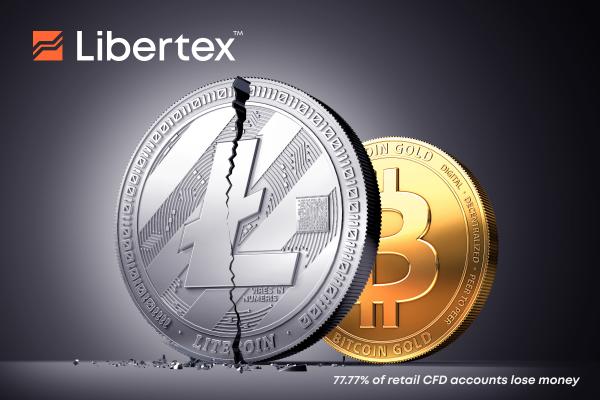After a torrid 2022 that saw the flagship cryptocurrency drop to multi-year lows below USD 16,000, this current year has been much more positive for BTC and the crypto market as a whole. In the first half of 2023, Bitcoin was able to double in value from these local lows to peak above USD 31,000 in early July. Sure enough, for any other asset class, a 100% gain over six months would be nothing short of miraculous, but crypto traders and investors have been spoiled by the whirlwind growth of digital assets’ early years and have been left expecting more. The recent halving of Litecoin on the 2nd of August – which resulted in an unexpected decline of almost 10% for LTC – has also foreshadowed some potential risks for Bitcoin in 2024 when it will undergo its own halving.
Now that gains have stalled for over a month and we’re back firmly below USD 30,000, many Bitcoin bulls are eager to see the uptrend resume. At a time of economic turmoil such as now, however, it’s hard to find the fundamentals that would allow BTC to outdo its already above-average performance YTD. Inflation remains above target across the world, the US recently had its AAA credit rating stripped, and the global geopolitical situations is as fraught as ever – all of which would rarely bode well for risk assets, of which crypto is just about the riskiest.
So, with that in mind, let’s take a closer look at some of the biggest factors (good and bad) liable to impact the crypto market in the medium term, with a view to helping digital asset traders and investors gain some clarity at this uncertain time.
Inflation still a worry
As we’ve already touched upon, the persistent higher-than-desirable inflation continues to be an issue for risk assets – though, to be fair, it didn’t really prevent BTC from gaining close to 100% YTD. However, with this latest publication of the official CPI figures for July, we have seen a definite impact on the Bitcoin price. It’s no coincidence that the digital currency dipped 2% in the days immediately following the news on 9 August that inflation was up 0.2% MoM and 3.3% YoY. And this despite many hailing the CPI numbers as largely more positive than initially expected. We will remember a similar development back in June when May’s CPI data showed a 1% MoM and 8.6% YoY increase, prompting Bitcoin to drop from USD 30,000 to 29,500.
In a way, it’s almost more troubling that this month’s far more optimistic report has prompted an almost identical percentage decline. It makes sense that a still retail-dominated market like crypto would suffer from enduring above-target inflation. Putting aside the macro negative correlation between volatile risk asset and price pressure, higher prices mean ordinary HODLers simply have less money at the end of the month and – even with the best of intentions – their surplus income to invest is necessarily lower. As long as the Fed can continue to bring inflation under control and providing labour market statistics remain positive, this factor should subside in the medium term, allowing for renewed gains in 2024.
Spot Bitcoin ETFs on the horizon
Amid tighter regulation, increasing mining difficulty, and stagnating prices, it’s understandable why some fainter-hearted crypto holders are starting to get jittery. However, it's far from all doom and gloom for Bitcoin as the arrival of spot Bitcoin ETFs grows closer. Despite the SEC’s attempts to delay or reject any such applications in the US, the Amsterdam-based Euronext exchange today (15/08) welcomed its first ETF of this kind under the ticker BCOIN to rapturous applause on the Old Continent.
This comes after other major economies including Brazil and Canada listed their own spot BTC ETFs. The importance of such a vehicle for less technically adept or older investors looking to gain exposure to the space but concerned or daunted by the process of purchasing and storing physical crypto cannot be underestimated. In fact, if the US were to approve such a fund of its own, a Sanford C. Bernstein research report estimates that it would account for 10% of the entire Bitcoin market in just three years.
Indeed, the already rising institutional interest in crypto would surely drive a tidal wave of adoption as many pension and other diversified investment funds add the ETF to their portfolios. As Bernstein sees it, the probability of the SEC eventually approving such a fund in the US is high, with a decision likely to arrive in early 2024. So far, the SEC is already reviewing applications by BlackRock, ARK Invest, Bitwise Asset Management, VanEck, WisdomTree, Invesco and Galaxy Digital, Fidelity and Valkyrie – and it will be hard for them to justify denying every last one, especially if the Jacobi FT Wilshire Bitcoin ETF enjoys success in Europe.
Bitcoin and beyond with Libertex
The cryptocurrency market is famed for its volatility. And despite more predictability in recent years, the asset class is still hard to pin down – especially with the ongoing governmental crackdowns around the world. For Libertex traders and investors, however, the good news is: It doesn’t matter which direction you think the market is going, you can find a way to trade crypto CFDs with Libertex. You can trade over 100 different digital underlying assets , including more traditional options like Bitcoin, Ethereum and Litecoin, as well as newer altcoins such as Solana, Dogecoin and even Shiba Inu. Not to mention a wide variety of other key asset classes like stocks, ETFs, commodities, Forex, and more. Libertex’s CFD model also means you can use leveraged trading on a variety of underlying assets, including crypto. For more information or to create your very own Libertex account today, visit www.libertex.com
Risk Warning: CFDs are complex instruments and come with a high risk of losing money rapidly due to leverage. 77.77% of retail investor accounts lose money when trading CFDs with this provider. Tight spreads apply. Please check our spreads on the platform. You should consider whether you understand how CFDs work and whether you can afford to take the high risk of losing your money.


